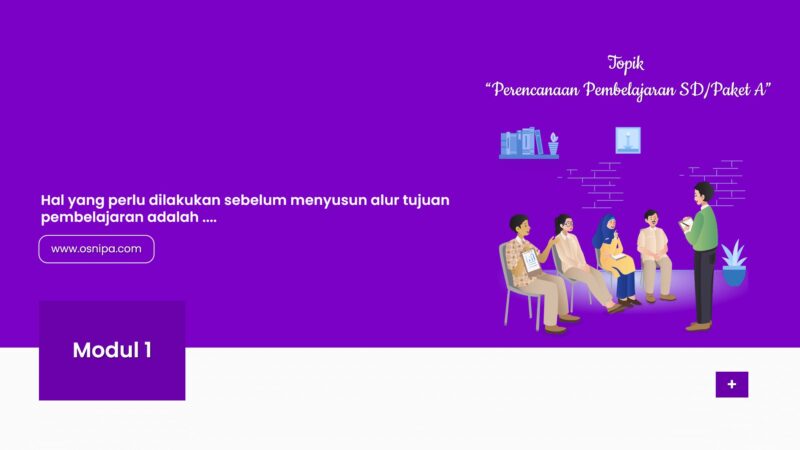Ciri-Ciri Perempuan Yang Sudah Tidak Suci Menurut Islam

Understanding the signs of a woman who is no longer considered pure in Islam involves recognizing specific traits and behaviors. These characteristics can often lead to questions about moral and spiritual standing within the faith.
Many believe that these traits not only reflect personal choices but also have broader implications for one’s relationship with the community and with God.
In this article, we will explore the ciri-ciri perempuan yang sudah tidak suci menurut islam, providing insights into how these signs manifest and their significance in Islamic teachings.
Understanding the Ciri-Ciri Perempuan yang Sudah Tidak Suci Menurut Islam
In the Islamic context, the concept of purity and chastity holds significant importance. It reflects a woman’s moral standing, values, and adherence to religious teachings. Knowing the characteristics of women considered “tidak suci,” or not pure, is crucial for both self-awareness and understanding societal expectations within Islam. This discussion does not aim to judge but rather to highlight various aspects that contribute to this perception according to Islamic teachings.
The Importance of Purity in Islam
Purity is an essential aspect of a Muslim’s life. In Islam, this purity extends beyond physical aspects and delves deeply into morality, ethics, and spirituality. Here’s why purity is significant:
- Spiritual Connection: Purity strengthens an individual’s relationship with Allah. It helps in performing rituals and prayers with sincerity.
- Community Standards: A pure individual contributes to the community’s moral fabric and upholds societal values.
- Personal Confidence: Maintaining purity boosts self-esteem and creates a positive self-image.
- Family Honor: A woman’s purity often reflects on her family, affecting their reputation within the community.
Ciri-Ciri Perempuan yang Sudah Tidak Suci
When discussing the characteristics of women who may be perceived as not pure in an Islamic context, it’s vital to understand that these perspectives can vary significantly based on cultural interpretations and individual beliefs. Below are some common characteristics identified within certain conservative interpretations of Islamic teachings:
Disregard for Modesty
Modesty, or “haya,” is a fundamental trait that Islam promotes. A disregard for this principle can be seen in various ways:
- Inappropriate Clothing: Wearing revealing or provocative outfits that do not align with Islamic guidelines for modest dress can be viewed negatively.
- Lack of Composure: Engaging in behavior that attracts undue attention, whether through speech or actions, can also diminish a woman’s perceived purity.
Engaging in Premarital Relationships
Premarital relationships are generally discouraged in Islam. The following points illustrate this concept:
- Physical Intimacy: Engaging in sexual relations before marriage is viewed as a major deviation from Islamic teachings.
- Emotional Attachments: Developing deep emotional connections outside of marriage can be seen as crossing boundaries set by Islamic principles.
Substance Abuse
The use of intoxicants is strictly prohibited in Islam. Characteristics relating to substance abuse include:
- Consumption of Alcohol: Drinking alcoholic beverages is forbidden and can lead to actions that compromise purity.
- Drug Use: Using drugs is considered a serious offense and negatively impacts a woman’s character.
Engagement in Gossip and Slander
Gossip is seen as a destructive behavior in Islam. Characteristics under this category involve:
- Spreading Rumors: Sharing unverified information about others can harm reputations and is heavily discouraged.
- Negative Speech: Engaging in slanderous conversations can reflect poorly on one’s character and purity.
The Role of Intentions in Islam
One must remember that intentions play a crucial role in Islam. A woman might commit acts that appear contrary to the principles of purity, but if her intentions are sincere, she may still find redemption. The concept of “niyyah,” or intention, emphasizes that actions are judged based on what is in one’s heart.
- Seeking Forgiveness: If a woman realizes her actions deviate from Islamic teachings, seeking forgiveness from Allah can restore her purity.
- Repentance: True repentance involves feeling remorse and making changes to avoid repeating past mistakes.
Community and Family Influence
Family and community play an essential role in shaping individual behavior and perceptions related to purity. Here’s how:
Cultural Expectations
Cultural norms can influence the understanding of purity. These expectations may include:
- Dress Code: Families may have specific standards for how women should dress according to their interpretation of Islamic teachings.
- Social Behavior: Restrictions on social interactions, especially with non-mahram individuals, can reflect cultural views regarding purity.
Supportive Environment
A supportive family can help reinforce positive behaviors:
- Encouragement: Families that emphasize the importance of modesty and purity create an environment that fosters adherence to these values.
- Guidance: Open discussions about Islamic teachings can remove confusion and uncertainty regarding purity.
Redemption and Growth
It’s vital to recognize that Islam encourages growth and redemption. Women who may have strayed from the path can always return:
- Education: Learning Islamic teachings can help individuals understand the importance of purity and the consequences of their actions.
- Community Service: Engaging in charitable activities can help restore one’s image and contribute positively to society.
- Support Groups: Finding groups that foster Islamic values can provide the necessary support in the journey toward personal growth.
Understanding Individual Circumstances
Each individual’s circumstances are unique, and it’s essential to approach this topic with compassion. Various factors contribute to how a woman may express her beliefs and values. Here’s what to consider:
- Personal History: Women may have backgrounds that influence their current behaviors and choices.
- Peer Pressure: The influence of peers can lead to actions that conflict with personal and religious beliefs.
- Misinterpretation of Teachings: Some individuals may misinterpret Islamic teachings, leading them to adopt behaviors that do not align with traditional values.
The Path to Purity
For those seeking to embody the characteristics of purity, here are some steps to consider:
- Daily Prayer: Establishing a regular prayer routine strengthens spiritual connections and fosters a sense of discipline.
- Reading Quran: Regular reading and understanding of the Quran can provide guidance and reinforce Islamic values.
- Setting Goals: Setting personal goals to improve oneself can help in maintaining focus on the path of purity.
In summary, understanding the characteristics of women viewed as “tidak suci” in Islam requires a nuanced approach. It intertwines personal choices, community influences, and cultural factors. Each individual has the potential for growth and improvement in their journey towards embracing the values of purity as defined in Islam. Remember, the path to redemption is always open for those willing to seek it.
6 Ciri Ciri Fisik Wanita Yang Sudah Tidak Suci
Frequently Asked Questions
“`html
What are the common misconceptions about a woman’s purity in Islam?
Many people mistakenly equate a woman’s purity solely with her past actions, neglecting the importance of her current state and intentions. Islam emphasizes repentance, forgiveness, and personal growth, showing that a woman can regain her purity through sincere repentance and positive change.
How does Islam view a woman’s dignity regardless of her past?
Islam places great value on a woman’s dignity and self-worth, regardless of her past. All individuals are entitled to respect and honor, and Islam encourages compassion and understanding towards others. A woman’s actions do not define her entire being, and every person has the potential for redemption.
What role does repentance play in the context of purity in Islam?
Repentance plays a crucial role in Islam. It allows individuals, including women, to seek forgiveness for their past mistakes and return to a state of purity. Islam teaches that genuine repentance cleanses the heart and soul, enabling a person to start anew and strive for better behavior in the future.
How can a woman maintain her purity in the eyes of Islam?
A woman can maintain her purity by adhering to Islamic principles, engaging in regular prayers, seeking knowledge, and surrounding herself with supportive and positive influences. Building a strong connection with Allah through worship and good deeds helps reinforce her commitment to purity and righteousness.
What should the community’s role be in supporting women’s dignity and purity?
The community should foster an environment of support, understanding, and compassion for women. Rather than judging past actions, community members can encourage positive behavior, provide guidance, and celebrate a woman’s efforts to better herself, thus promoting an atmosphere of growth and healing.
“`
Final Thoughts
Understanding the characteristics of women who are no longer deemed pure in Islam helps clarify the moral and ethical standards within the faith. Generally, these signs may include engaging in illicit relationships, neglecting prayer, or intentionally disobeying Islamic teachings.
Additionally, societal judgments and personal behaviors can reflect a woman’s spiritual state. It’s essential to approach this topic with compassion, recognizing that everyone can seek forgiveness and strive for improvement.
Ciri-ciri perempuan yang sudah tidak suci menurut islam highlights the importance of awareness and accountability in one’s actions. Individuals should focus on self-reflection and growth, rather than judgment.







